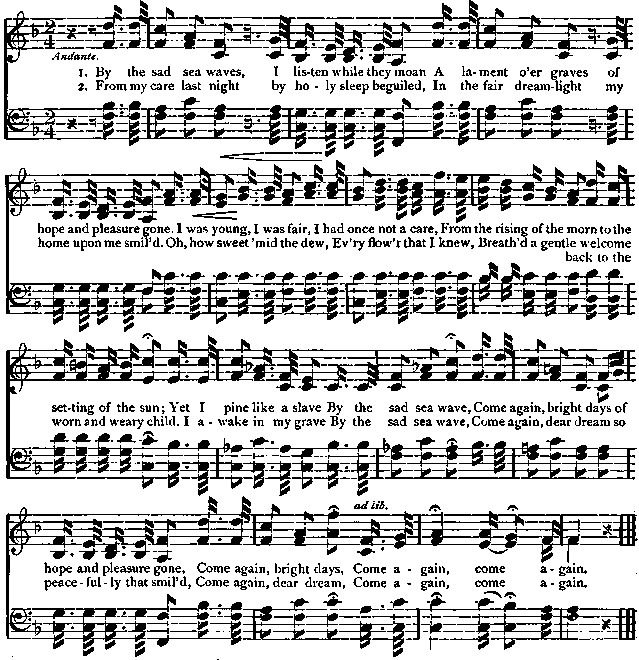Franklin Square Song Collection - online songbook
200 favorite songs and Hymns for Schools, Homes Lyrics & Sheet Music
| Share page | Visit Us On FB |
|
126 |
FRANKLIN-SQUARE SONG COLLECTION. |
||||
|
Duty of Pastors.—We do not think that congregational singing will ever prevail with power until pastors of churches appreciate its importance and universally labor to secure it. If ministers regard singing as but a decorous kind of amusement, pleasantly relieving or separating the more solemn acts of worship, it will always be degraded. The pastor, in many cases, in small rural churches may be himself the leader. In larger societies, where a musical director is employed, the pastor should still be the animating centre of the music, encouraging the people to take part in it, keeping before them |
their duty, and their benefit in participating in this most delightful part of public worship. It is a very general impression that the pastor is to preach and pray, but another man is to sing. Music is farmed out, and the unity of public services is marred by two-systems of exercises conducted by different persons, and oftentimes without concord or sympathy with each other, and sometimes even with such contrariety that the organ and the choir effectually neutralize the pulpit. While it may not be needful that the pastor should perform the part of a musical leader, yet it is certain that there will not be a spirit of song, in the |
||||
|
BY THE SAD SEA WAVES. |
J. Benedict. |
||||
 |
|||||
|
|
|||||
|
whole congregation, if he is himself indifferent to it, and the first step toward congregational singing must be in the direction of the ministry.—H. IV. Beecher. Plato in his Republic, desires at least two harmonies—the one warlike, which will sound the word or note which a brave man utters in the hour of danger and stern resolve, or when his cause is failing and he is going to wounds or death, or is overtaken by some other evil, and at every crisis meets fortune with calmness and endurance; and another, which may be used by him in tinier of peace when there is no |
pressure of necessity, expressive of entreaty or persuasion, of prayer to God or instruction to man; which represents him when he has accomplished his aim, not carried away by success, but acting moderately and wisely, and acquiescing in the event: the strain of necessity and the strain of freedom, of the fortunate-and the unfortunate, of courage and temperance; adding in another connection," We can never become truly musical until we know the essential forms of temperance, courage, liberality, and magnificence."" Surely we can to-day raise no loftier standard than this. |
||||